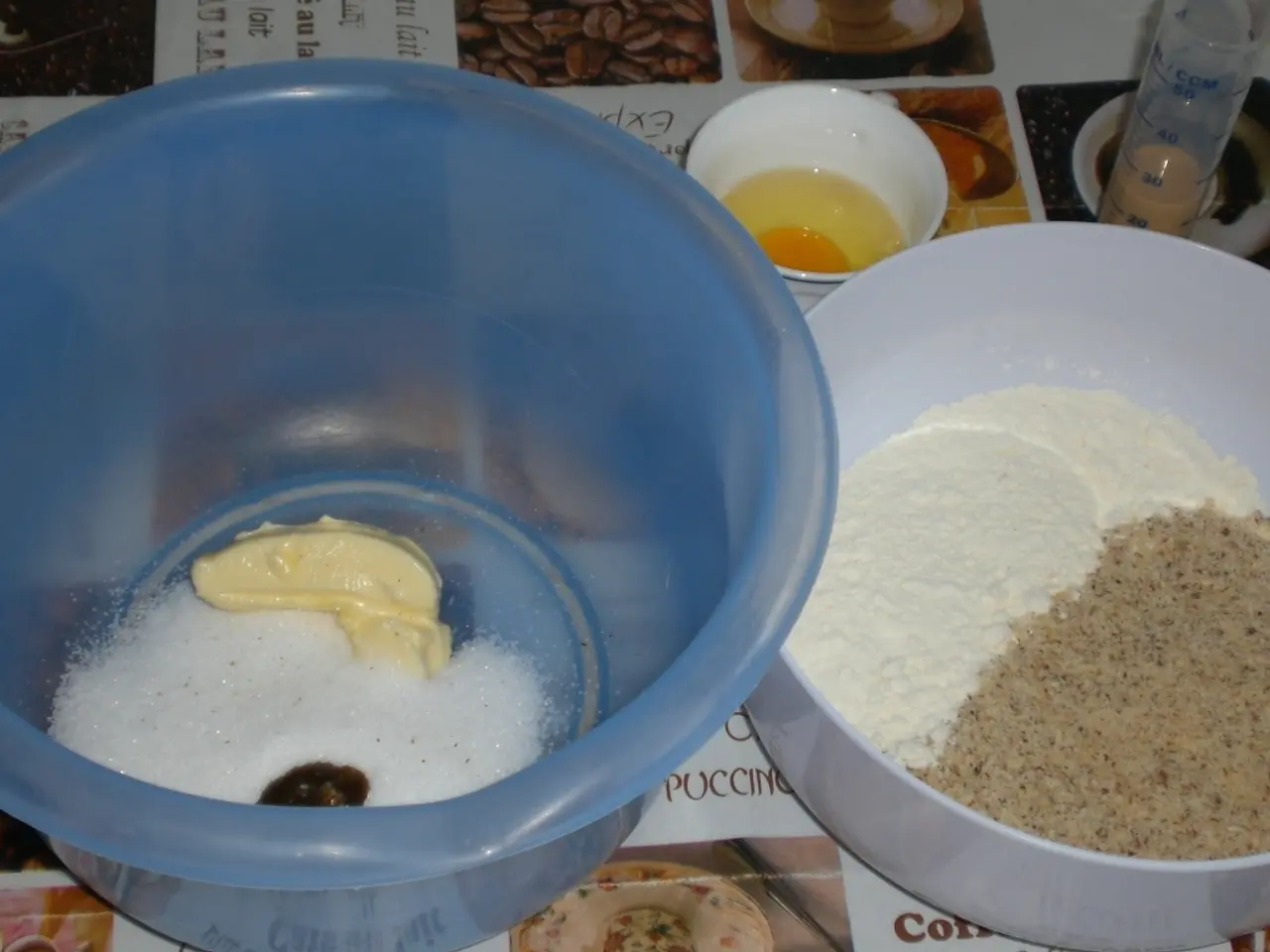Digestive disorder durations and recurring episodes, specifically focusing on irritable bowel syndrome (IBS)
Irritable Bowel Syndrome (IBS) is a common functional gastrointestinal disorder that affects millions of people in the United States. This chronic disorder can cause a range of symptoms, including irregular bowel movements, diarrhea, constipation, gas, bloating, and abdominal pain or discomfort [1].
Understanding IBS Flare-ups
IBS flare-ups can last from a few days to several weeks or even months, with no fixed duration since they vary widely among individuals. Some people experience short flares lasting only a few days, while others may face prolonged flare-ups lasting weeks or longer [2].
Managing IBS Flare-ups
Effective strategies for managing IBS flare-ups include:
- Dietary adjustments: Eating smaller meals earlier in the evening, avoiding common trigger foods such as fried/fatty foods, chocolate, coffee, and alcohol, and considering a low FODMAP diet under professional guidance can help manage symptoms [1][3].
- Hydration: Drinking plenty of water throughout the day can help ease bowel movements and prevent dehydration [1][2].
- Medications: Over-the-counter remedies like loperamide for diarrhea or fiber supplements (e.g., psyllium husk) for constipation can provide relief. Prescription antispasmodics or antidepressants may also be appropriate, based on medical advice [2][3].
- Rest and stress management: Ensuring adequate sleep (at least 8 hours), practicing relaxation techniques, and reducing anxiety can help manage IBS symptoms [2][3][5].
- Physical activity: Engaging in light exercise such as walking or stretching can improve gut motility and overall well-being [2][3].
- Symptom relief: Applying heat (hot water bottle) can soothe cramps and bloating, while peppermint tea may alleviate abdominal discomfort [3].
- Nighttime management: Avoiding large meals before bed and staying hydrated can reduce nighttime flare-ups [1].
Treatment Options for IBS
In addition to these strategies, psychological therapies such as psychotherapy and hypnosis may be used to treat IBS [1]. For people with severe IBS with diarrhea who do not respond to other treatments, a doctor may prescribe Lotronex (alosetron) [2]. Neuromodulator drugs that work on the nerves in the gut to reduce pain may also be prescribed [4].
Antidiarrheal drugs such as Imodium (loperamide) and neuromodulator drugs like Eluxadoline can help manage diarrhea in IBS [2][4]. Amitiza (lubiprostone) and Linzess (linaclotide) are drugs that alter chloride and fluid secretion in the gut to help with constipation in IBS [6]. An antibiotic called Rifaximin can help with IBS diarrhea [4].
Seeking Medical Advice
Since IBS symptoms and triggers vary, it is important to consult healthcare professionals for personalized advice and treatment [3]. Persistent or severe symptoms warrant prompt medical evaluation as they may indicate other conditions [5]. If someone experiences symptoms such as blood in stools or weight loss, they should seek medical advice to rule out other conditions [7].
The American College of Gastroenterology (ACG) advises someone to contact a doctor if they think they may have IBS, but the doctor will not usually do any tests to diagnose IBS [8].
Probiotics, dietary changes, mental health therapies and relaxation, physical activity, and sleep may help manage periods of IBS flare-ups and remission [3].
[1] https://www.mayoclinic.org/diseases-conditions/ibs/symptoms-causes/syc-20363478 [2] https://www.mayoclinic.org/diseases-conditions/ibs/diagnosis-treatment/drc-20363480 [3] https://www.healthline.com/health/ibs/treatment [4] https://www.healthline.com/health/ibs/medications-for-ibs [5] https://www.webmd.com/ibs/ibs-symptoms-and-causes [6] https://www.webmd.com/ibs/ibs-treatments [7] https://www.healthline.com/health/ibs/symptoms-of-ibs [8] https://www.healthline.com/health/ibs/ibs-diagnosis
- Initiating a low FODMAP diet, in consultation with a healthcare professional, might help manage the symptoms of IBS, given its potential to address the negative impacts of certain foods on the digestive system [1].
- Engaging in physical activities such as walking or stretching during the early stages of the day or later in the evening could improve gut motility and enhance the overall well-being of individuals dealing with IBS [2].
- Individuals who Naively believed that IBS could be cured through specific diets or supplements may find it helpful to consult healthcare experts for personalized advice, since each person's IBS symptoms, triggers, and treatment requirements can differ significantly [3].
- Hydration and regulating stress levels play crucial roles in managing IBS flare-ups, with ensuring adequate sleep and staying hydrated aiding in digestion and reducing anxiety, respectively [2][3][5].
- The skin-care and fitness-and-exercise routines of IBS patients should not be overlooked, as self-care and mental health are essential components of managing chronic medical conditions like IBS [3].
- If a person struggles with chronic IBS, they might seek counseling for mental-health issues, as those dealing with this health-and-wellness concern are at a higher risk for depression and anxiety [3].




